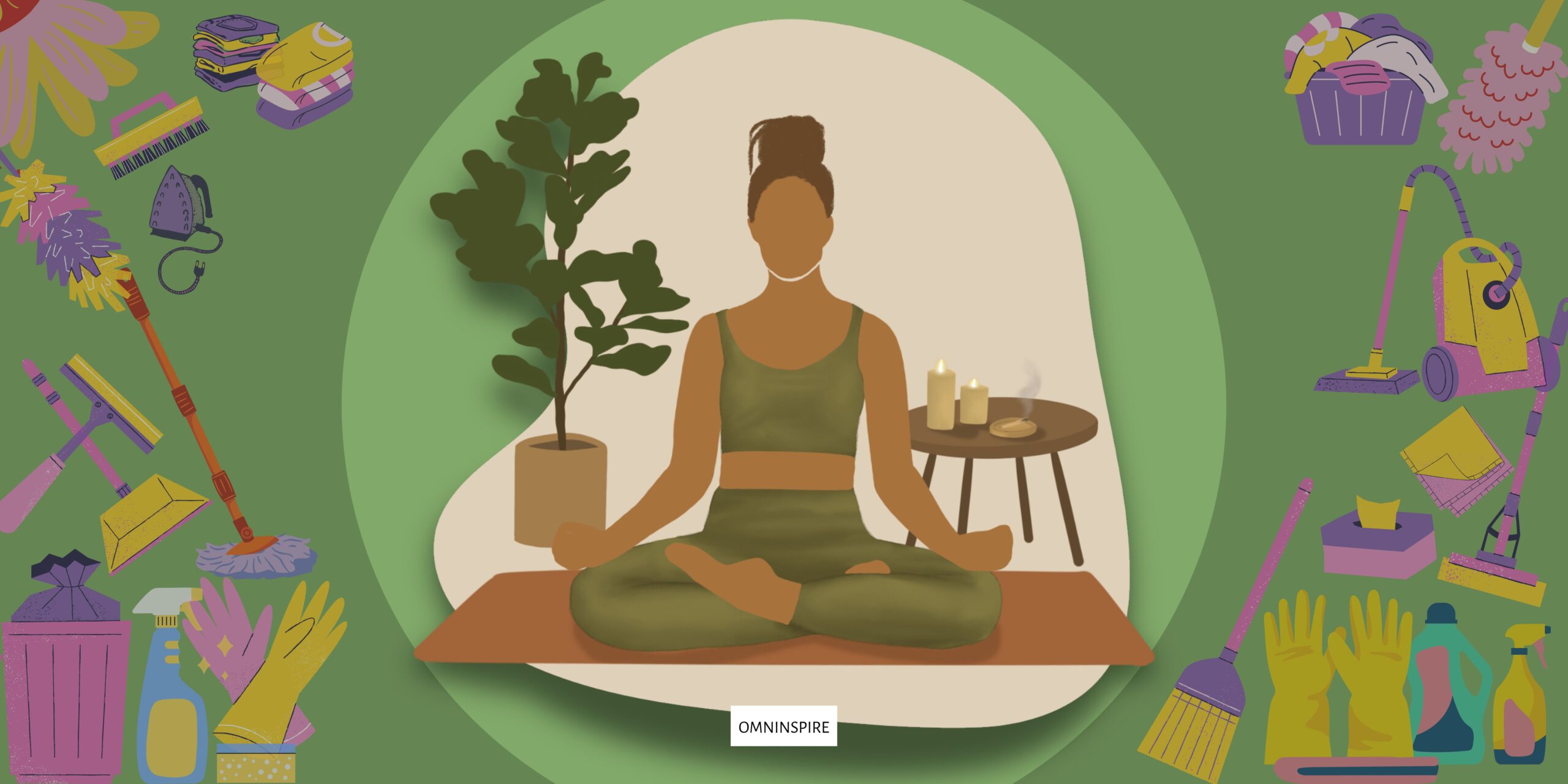A clean home is more than just a visual pleasure—it’s a sanctuary for your mind and body. In our daily lives, we often underestimate how much the state of our environment impacts our mental well-being. Imagine coming home after a long day at work to a cluttered, chaotic space. The mess might immediately make you feel more stressed and less in control. In contrast, walking into a well-organized, clean environment can have an immediate calming effect, helping you to feel more relaxed and grounded. This connection between physical space and mental state is something many of us experience on a subconscious level.
In fact, research supports the idea that cleanliness plays a significant role in our mental health. A study by Procter & Gamble, for example, showed that people would clean their homes before product testing to avoid any embarrassment about the cleanliness of their space. This instinct to tidy up reflects a deeper connection between the environment we live in and how we perceive ourselves(That’s when they came up with Swiffer!). Our homes are not just where we sleep and eat; they are a reflection of who we are and how we feel. For many, a messy home can evoke feelings of anxiety, guilt, and even overwhelm, while a clean space promotes feelings of accomplishment, serenity, and control.
Research increasingly supports the idea that a tidy environment helps reduce stress, improve focus, and even elevate mood. Scientific studies on the psychology of cleanliness show that cluttered spaces are often linked to elevated cortisol (stress hormone) levels, while organized spaces contribute to a sense of calm and well-being. In this article, we will delve into the science behind how a clean home boosts your mental health. From fostering productivity and reducing stress to promoting relaxation and clarity, a clean home offers more than just aesthetic benefits—it creates a peaceful environment that can help you thrive both mentally and emotionally.
1. Reducing Stress and Anxiety
A cluttered environment often mirrors a cluttered mind. Studies, such as one by Princeton University, have found that a cluttered space can overload your visual cortex, making it harder to focus and causing stress. When your home is clutter-free, it becomes a place of rest, not stress. Walking into a tidy room can immediately make you feel calm, helping you to relax and unwind. Furthermore, keeping things clean is an effective way to prevent anxiety from piling up. A clean home, therefore, directly boosts mental health by creating an environment that supports calmness and reduces stress.
2. Boosting Mood Through Sense of Accomplishment
Cleaning and organizing offer a sense of accomplishment that is both immediate and fulfilling. According to psychology, completing tasks, no matter how small, releases dopamine, the “feel-good” hormone. Tidying up even one room can bring a mood boost, and that satisfaction can make the whole day feel better. Moreover, a clean home enhances self-esteem and self-worth, giving you a sense of control over your surroundings.
3. Enhancing Focus and Concentration
A clean home helps you stay focused and productive. According to the Princeton Neuroscience Institute, clutter limits your brain’s ability to concentrate. With fewer distractions in a clean environment, your brain can process information more clearly. Studies show that people tend to complete tasks faster and more effectively when working in organized spaces. With your home in order, your mind feels less crowded, improving your ability to concentrate on daily tasks or even enjoy leisure activities more deeply.
4. Improving Physical Health, Which in Turn Benefits Mental Health
Cleaning is an activity that gets you moving, which has added health benefits. Physical activities, including cleaning, release endorphins, which reduce stress and make you feel more positive. Also, keeping surfaces clean helps reduce dust, mold, and allergens, contributing to better respiratory health and, consequently, better mental well-being. A healthy body supports a healthy mind, and regular cleaning practices make a difference in achieving both.
5. Creating a Sense of Order and Control
A clean home gives you a feeling of control, which is especially comforting when life feels chaotic. A study published in the Personality and Social Psychology Bulletin suggests that people who perceive their homes as “cluttered” tend to have higher levels of cortisol, the stress hormone. However, maintaining order gives you a tangible way to manage your space, creating a refuge from external chaos. By providing structure, a clean home boosts your mental health, making you feel more grounded.
6. Building Healthy Routines and Habits
Cleaning and organizing are habits that contribute positively to mental health. When cleaning becomes part of a regular routine, it provides consistency and stability, factors known to reduce anxiety. A clean home habit can also inspire you to adopt other healthy habits, such as mindful eating, exercise, and self-care. This interconnectedness between a clean home and mental well-being demonstrates how seemingly small actions can yield significant mental health benefits.
7. Supporting Better Sleep Quality
A tidy, calm space can improve your sleep. According to the National Sleep Foundation, people who make their beds every morning are more likely to get quality sleep. This is partly because a clean, organized bedroom promotes relaxation, making it easier to fall asleep. When your sleep environment is free of distractions, your body and mind can rest deeply, ensuring you wake up refreshed and mentally recharged.
8. Enhancing Social Interactions and Confidence
A clean home encourages social interaction by making you feel more comfortable inviting friends or family over. Socializing is essential for mental health, and knowing that your home is clean boosts confidence. You won’t hesitate to host guests, allowing you to enjoy the positive effects of social connections, which are known to support emotional well-being.
9. Practicing Mindfulness Through Cleaning
Cleaning itself can be a mindful practice. When done with intention, it brings your attention to the present moment. Focusing on repetitive cleaning actions like sweeping, dusting, or folding laundry can calm the mind, similar to meditation. Psychologists suggest that mindfulness exercises like this reduce anxiety and depression. By adopting mindful cleaning habits, a clean home not only boosts your mental health but also nurtures inner peace.
10. Creating a Positive Environment for Growth and Creativity
A clean and organized space promotes an environment where creativity and personal growth can flourish. Without clutter or disorder weighing you down, you have room to think, create, and explore. Many psychologists link clean environments with increased motivation to pursue new activities or hobbies, which are essential for mental well-being.
- Princeton Neuroscience Institute – Study on the impact of clutter on focus and cognitive function.
- National Sleep Foundation – Research on how organized sleep environments enhance sleep quality.
- University of New Mexico – Research on clutter’s psychological impact on stress and satisfaction.










